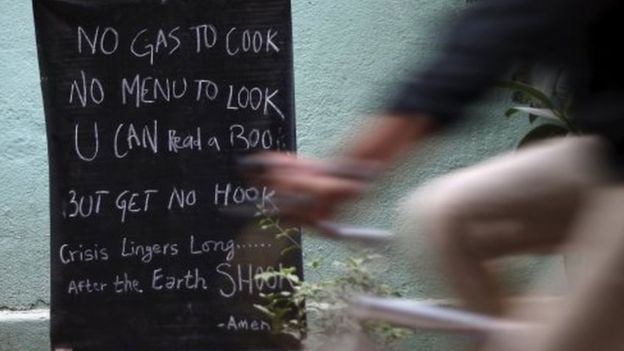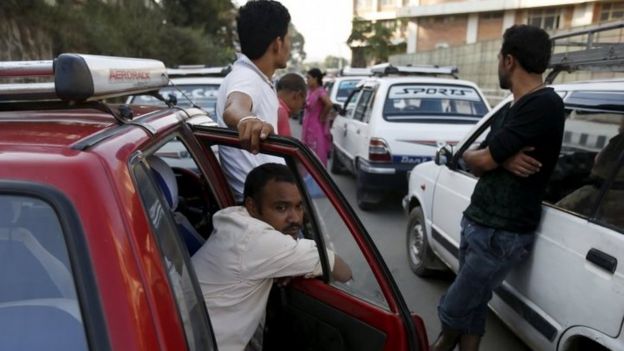About 200 Twitter users in Nepal have gathered outside the Indian embassy in Kathmandu to "donate" oil as fuel shortages become more acute.
The protesters blame India for blockading fuel supplies on the India-Nepal border because Delhi is unhappy about Nepal's new constitution.
But India insists that it is not responsible for the blockade.
The demonstrators gathered after the embassy asked the Nepal Oil Corporation to provide fuel for its vehicles.
Shortages have become so pronounced that pharmaceutical companies in Nepal say they will be unable to manufacture essential drugs in the coming weeks because of a shortage of raw materials created by the blockade.
 Reuters
Reuters
Officials are now reported to be looking into the possibility of flying fuel into the country from nearby Bangladesh.
Steps have already been taken to curtail the sale of petrol to all private vehicles.
Protesters said that their demonstration was "in the spirit of good neighbourliness" which is why they mockingly decided to "donate" oil to the embassy even though many Nepalese people are enduring hardships because of what they say is the Indian-enforced fuel blockade.
The BBC's Sanjaya Dhaka in Kathmandu says that at one point on Wednesday#DonateOilToIndianEmbassy became a top worldwide trend on Twitter.
Nepal's new constitution was promulgated two weeks ago, but sparked protests in the country's southern plains bordering India.
 Reuters
Reuters
More than 40 people have died in protests related to the new constitution.
The demonstrators - most of whom are ethnic Madeshi people who live in the plains - are angry that it divides Nepal into seven new states, slicing through their ancestral homeland.
The Madeshis - who have close cultural ties with India - and other ethnic groups want the states to be larger with more autonomy.
India argues that insecurity caused by protests has meant that trucks carrying fuel and other essential goods cannot enter Nepal.
But correspondents say that many Nepalese view the Indian move as an unofficial blockade in support of people who live in the plains.
Negotiations between the protesters and the government are due to resume on Friday.
The talks come as concern mounts that the blockade will interfere with Dashain, the highlight of Nepal's religious calendar, which begins in less than two weeks.
Many people who live in Kathmandu come from districts outside the city and its surrounding valley and return home by road for the festival.
http://www.bbc.com/news/world-asia-34469494
No comments:
Post a Comment